- Home
- Quizzes
- My Quiz Activity
- Newsletters
- MY FAVORITES
- Add Sports/Teams
- SPORTS
-
NFL
- NFL Home
- Arizona Cardinals
- Atlanta Falcons
- Baltimore Ravens
- Buffalo Bills
- Carolina Panthers
- Chicago Bears
- Cincinnati Bengals
- Cleveland Browns
- Dallas Cowboys
- Denver Broncos
- Detroit Lions
- Green Bay Packers
- Houston Texans
- Indianapolis Colts
- Jacksonville Jaguars
- Kansas City Chiefs
- Las Vegas Raiders
- Los Angeles Chargers
- Los Angeles Rams
- Miami Dolphins
- Minnesota Vikings
- New England Patriots
- New Orleans Saints
- New York Jets
- New York Giants
- Philadelphia Eagles
- Pittsburgh Steelers
- San Francisco 49ers
- Seattle Seahawks
- Tampa Bay Buccaneers
- Tennessee Titans
- Washington Commanders
-
MLB
- MLB Home
- Athletics
- Arizona Diamondbacks
- Atlanta Braves
- Baltimore Orioles
- Boston Red Sox
- Chicago White Sox
- Chicago Cubs
- Cincinnati Reds
- Cleveland Guardians
- Colorado Rockies
- Detroit Tigers
- Houston Astros
- Kansas City Royals
- Los Angeles Angels
- Los Angeles Dodgers
- Miami Marlins
- Milwaukee Brewers
- Minnesota Twins
- New York Yankees
- New York Mets
- Philadelphia Phillies
- Pittsburgh Pirates
- San Diego Padres
- San Francisco Giants
- Seattle Mariners
- St. Louis Cardinals
- Tampa Bay Rays
- Texas Rangers
- Toronto Blue Jays
- Washington Nationals
-
NBA
- NBA Home
- Atlanta Hawks
- Boston Celtics
- Brooklyn Nets
- Charlotte Hornets
- Chicago Bulls
- Cleveland Cavaliers
- Dallas Mavericks
- Denver Nuggets
- Detroit Pistons
- Golden State Warriors
- Houston Rockets
- Indiana Pacers
- Los Angeles Clippers
- Los Angeles Lakers
- Memphis Grizzlies
- Miami Heat
- Milwaukee Bucks
- Minnesota Timberwolves
- New Orleans Pelicans
- New York Knicks
- Oklahoma City Thunder
- Orlando Magic
- Philadelphia 76ers
- Phoenix Suns
- Portland Trail Blazers
- Sacramento Kings
- San Antonio Spurs
- Toronto Raptors
- Utah Jazz
- Washington Wizards
-
NHL
- NHL Home
- Anaheim Ducks
- Boston Bruins
- Buffalo Sabres
- Calgary Flames
- Carolina Hurricanes
- Chicago Blackhawks
- Colorado Avalanche
- Columbus Blue Jackets
- Dallas Stars
- Detroit Red Wings
- Edmonton Oilers
- Florida Panthers
- Los Angeles Kings
- Minnesota Wild
- Montreal Canadiens
- Nashville Predators
- New Jersey Devils
- New York Islanders
- New York Rangers
- Ottawa Senators
- Philadelphia Flyers
- Pittsburgh Penguins
- San Jose Sharks
- Seattle Kraken
- St. Louis Blues
- Tampa Bay Lightning
- Toronto Maple Leafs
- Utah Mammoth
- Vancouver Canucks
- Vegas Golden Knights
- Washington Capitals
- Winnipeg Jets
- NCAAF
- NCAAM
- Olympics
- Boxing
- Entertainment
- Lifestyle
- Golf
- MMA
- Soccer
- Tennis
- Wrestling
- Sports Betting
- More Sports
- RESOURCES
- My Account
- YB on Facebook
- YB on Twitter
- YB on Flipboard
- Contact Us
- Privacy Policy
- Terms of Service
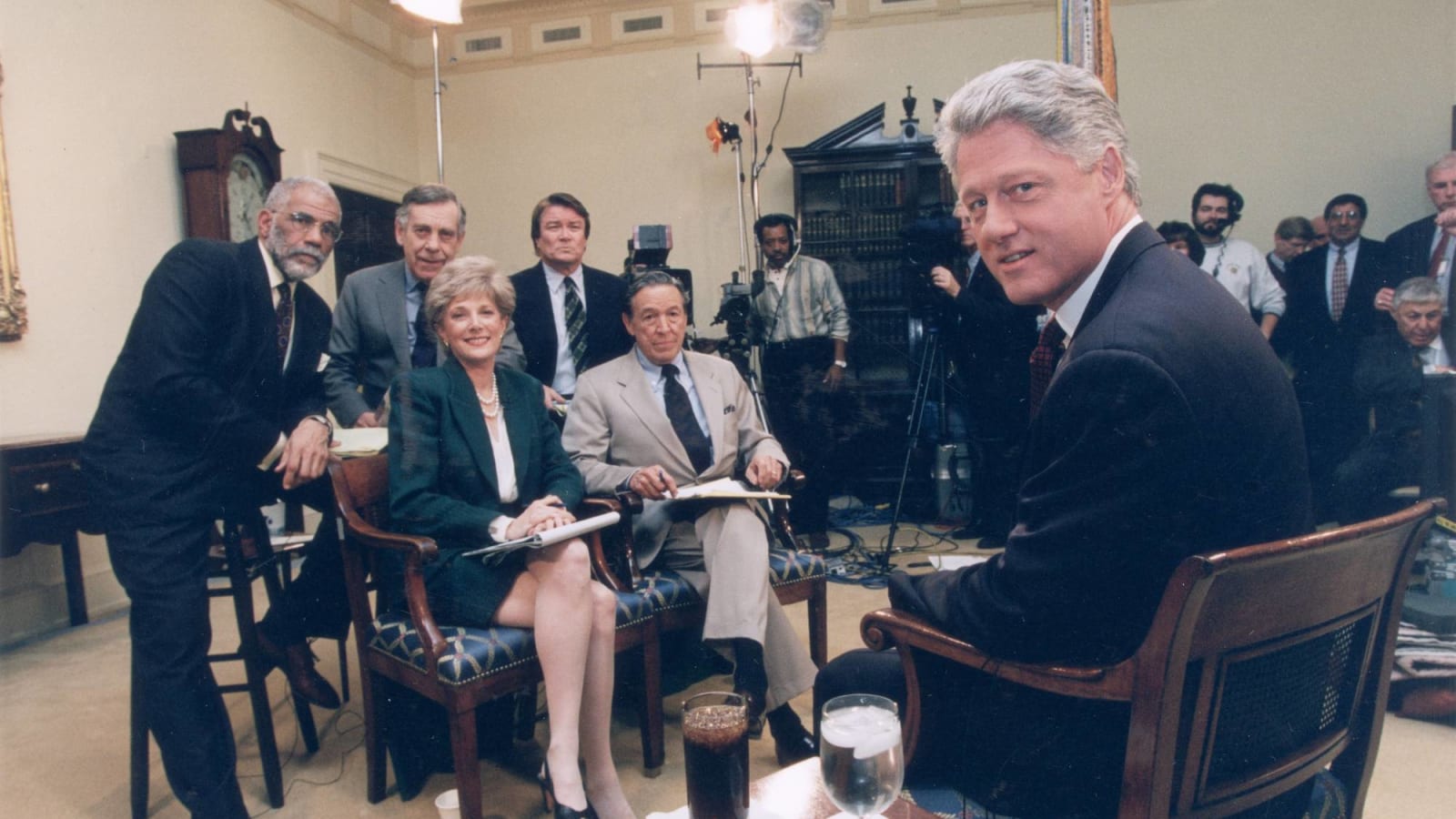
'60' at turns 50: Every '60 Minutes' host and correspondent throughout the years
“60 Minutes” was introduced to the world on Sept. 24, 1968 as a biweekly newsmagazine television program that was something of a risky experiment by producer Don Hewitt. After all, never before had the personalities behind the reporting played such a prominent role in TV news stories. “60 Minutes” is still a weekly programming staple, and some quick math will tell you that it is approaching its 50th anniversary. Although the format has stayed relatively consistent, a lot of names both large and small have had stints on the show, and we will look at each one in this slideshow. Here is every “60 Minutes” host, correspondent and commentator throughout the years.
Mike Wallace (1968 – 2008)

When “60 Minutes” first debuted, it had two co-hosts, one of whom was the legendary Mike Wallace. Wallace helmed the now-iconic news show for nearly 40 years, famously (and sometimes controversially) interviewing the likes of Ayatollah Khomeini, Louis Farrakhan, Johnny Carson, Barbra Streisand, Jiang Zemin, Gen. William Westmoreland, Mel Brooks and Vladimir Putin. Wallace was made a correspondent emeritus of “60 Minutes” following his retirement in 2006, during which time he spoke with Iranian President Mahmoud Ahmadinejad (which earned Wallace his 21st Emmy Award) and euthanasia advocate Dr. Jack Kevorkian. His final interview was a January 2008 discussion about steroids with retired MLB pitcher Roger Clemens. Wallace died at age 93 on April 7, 2012.
Harry Reasoner (1968 – 70 and 1978 – 91)

Harry Reasoner was Mike Wallace’s co-host on that first episode of “60 Minutes” back in 1968. However, Reasoner’s stint with the show was a bit shorter and less consistent. He stuck around for the show’s first two years before being lured away to host “ABC Evening News.” He returned in 1978 for a much longer tenure that lasted until May 19, 1991, just three months prior to his death at age 68. Armed with a wry wit and some Midwestern charm, Reasoner’s time on “60 Minutes” saw him chatting with personalities like George Steinbrenner and Joe Paterno, but audiences will still most likely remember him best for delivering the show’s very first introduction. “Good evening. This is 60 Minutes,” Reasoner said. “It's a kind of a magazine for television, which means it has the flexibility and diversity of a magazine adapted to broadcast journalism.”
Morley Safer (1968 – 2016)

When “60 Minutes” first began, Morley Safer was a part-time correspondent, but he was quickly promoted to host in 1970 after the departure of Harry Reasoner. The show, as well as Safer’s career, would never be the same. The iconic journalist would become a fixture on the show, helping it avoid cancellation in the early years while covering both hard and soft stories with fairness and kindness over the course of his 48-year stint. In addition to three Peabodys and numerous other journalistic honors, Safer also won 12 Emmys — including one in his first year as host for a revealing report on the Gulf of Tonkin investigation — and a Lifetime Achievement award given to him at the age of just 35. Safer died at age 84 on May 19, 2016, just eight days after retiring from “60 Minutes.”
Dan Rather (1968 – 81 and 2005 – 06)

It seems like Dan Rather has been somehow involved in every major news event since 1962, and that isn’t far from the truth. Rather joined CBS that year, was added to the “60 Minutes” team upon its debut and acted as a correspondent or anchor for the network consistently up until 2006. He was in Dallas during the JFK assassination, was roughed up by security on the floor of the 1968 Democratic National Convention, covered the Watergate scandal, was on the front lines of the Soviet-Afghan War and made enemies of both George H.W. and George W. Bush after a tense interview with the former involving the Iran–Contra affair. Although Rather left the network in 2006, the Emmy and Peabody Award-winning icon has remained involved in the news to this day. He currently hosts “The News with Dan Rather” on YouTube.
Walter Cronkite (1968 – 81)

After gaining notoriety from flying with U.S. airmen in World War II, being the first newsman to report on President Kennedy’s assassination and his early coverage of the war in Vietnam, Walter Cronkite became a part-time “60 Minutes” correspondent in 1968. With the network until 1981, Cronkite, a four-time Peabody winner, spent most of his time as anchorman of the “CBS Evening News,” but he was seen an integral part of garnering credibility and notoriety for “60 Minutes” in its early years.
And that’s the way it is.
Bill Plante (1968 – 95)

On behalf of CBS, Bill Plante traveled everywhere and covered everything from the 1965 protest marches in Selma to the election of the first black president of the United States, before retiring in November 2016. He appeared on and/or anchored the “CBS Evening News,” “CBS This Morning,” and “CBS Sunday Night News” and became one of the most recognizable and respected White House correspondents in media history. During his tenure at the network, Plante won Emmys for covering the U.S.-Soviet wheat deal of 1972, President Ronald Reagan’s 1984 re-election campaign, the 1987 Reagan-Gorbachev summit and Princess Diana’s death, and he was a “60 Minutes” correspondent between 1968 and 1995.
Roger Mudd (1968 – 80)

Although he’s more known for his work with NBC (including co-anchoring the “NBC Nightly News” with Tom Brokaw and co-moderating “Meet the Press”), PBS (as part of the “MacNeil–Lehrer NewsHour”) and the History Channel (for which he still contributes at the age of 90), Roger Mudd previously worked for CBS for nearly two decades. There he was a congressional correspondent, an anchor for the Saturday broadcast of the “CBS Evening News” and a part-time member of the “60 Minutes” staff. But he left the network entirely in 1980 after he was passed over for a promotion as Walter Cronkite’s successor in favor of Dan Rather.
Charles Kuralt (1968 – 79)
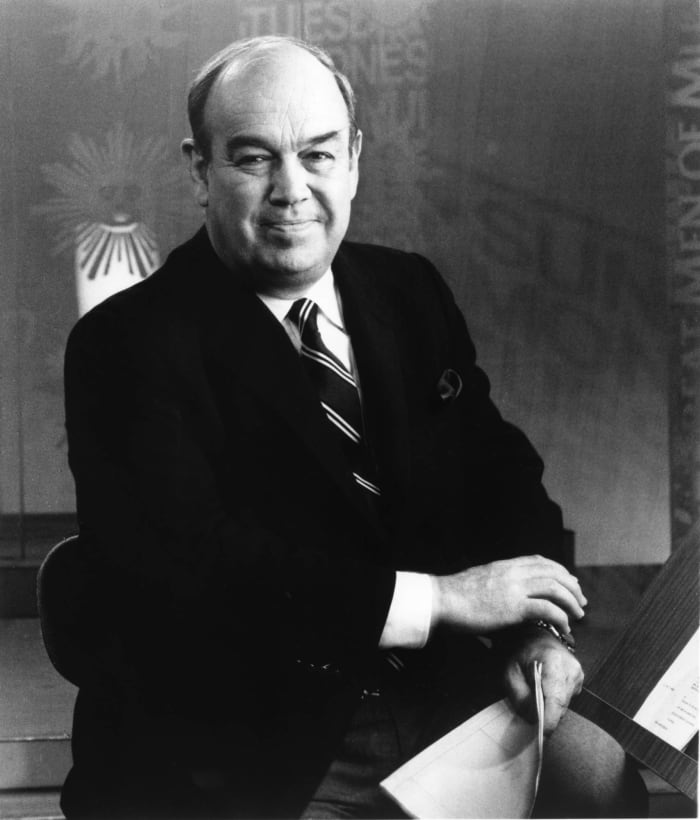
Charles Kuralt was an occasional correspondent for “60 Minutes” between its inception and 1979, but the journalist is better known for his regular segment on “The CBS Evening News” with Walter Cronkite. Titled “On the Road,” it featured Kuralt crisscrossing America’s backroads in an RV looking for real stories from real Americans. What began as a three-month experiment eventually turned into a 25-year mainstay on the network. Kuralt finished his four-decade-long career with 10 Emmy and three Peabody Awards.
Eric Sevareid (1968 – 69)

Eric Sevareid’s stint as a “60 Minutes” correspondent was brief but notable, as he was also a producer during the show’s debut. Previously, Sevareid was a World War II correspondent under Edward R. Murrow, he was the first to report on the Fall of France in 1940 and had his plane shot down in Burma before getting rescued. He eventually became a commentator on the “CBS Evening News” for a dozen years, during which time he earned his second and third of three Peabody Awards as well as a pair of Emmys.
John Hart (1969 – 75)

The first person in this list who wasn’t present for the “60 Minutes” debut, John Hart (top left) joined a year later, in 1969, as one of the show’s early correspondents. Like most journalists at the time, Hart was tasked with covering the war in Vietnam as well as the 1968 presidential election. He left both his morning anchor position and “60 Minutes” in 1975 when he departed CBS for rival network NBC, where he was a foreign correspondent who famously interviewed Iranian leader Ayatollah Khomeini.
James J. Kilpatrick (1971 – 79) and Nicholas von Hoffman (1971 – 74)

Soon after its premiere, “60 Minutes” introduced a segment called Point-Counterpoint, where a conservative commentator and a liberal commentator debated both sides of an issue. Columnist James L. Kilpatrick (pictured) represented the right side of the spectrum for nine years, opposing Nicholas von Hoffman until 1974 and Shana Alexander after that. The heated and popular segment paved the way for future series of a similar format, as well as numerous parodies, including in the 1980 comedy film “Airplane!”
Nicholas von Hoffman repped the liberal side of the Point-Counterpoint segment on “60 Minutes” between 1971 and 1974. But he was fired from the network by producer Don Hewitt after he called Nixon a “dead mouse on the kitchen floor that everyone was afraid to touch and throw in the garbage,” on the air. Later in his career and life, von Hoffman was an accomplished author, a radio commentator on “Byline” and a columnist for the New York Observer and The Huffington Post. He passed away in early 2018 at the age of 88.
Bob Schieffer (1973 – 96)

Upon coming to CBS, Bob Schieffer joined both the anchor desk of the “CBS Sunday Night News” and the correspondent team of “60 Minutes.” He remained a part-timer for his 23-year stint on the latter news show, as he was also involved with the “Saturday Evening News,” “CBS Sunday Evening News,” morning news and as a moderator of “Face the Nation.” Schieffer was a Washington-based journalist for nearly his entire career, during which he interviewed every U.S. president since Richard Nixon. Today, an 81-year-old Schieffer still talks news on his own podcast.
Morton Dean (1975 – 79)
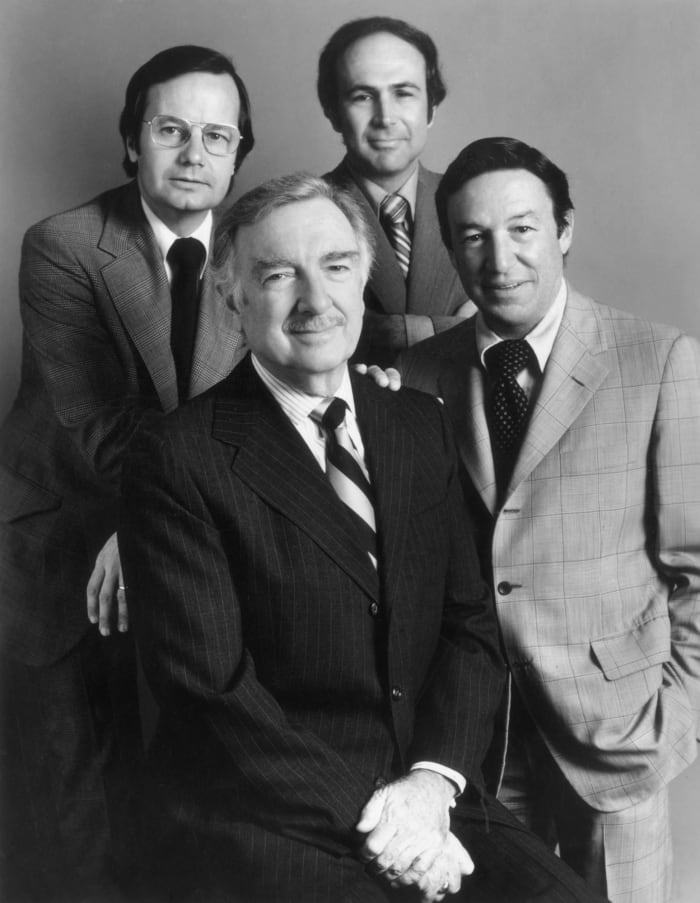
Morton Dean’s (top center) time with “60 Minutes” was brief, lasting from just 1975 to 1979. During this time, he was also an anchor on the “CBS Sunday Night News” and later the “CBS Sunday Evening News.” Even after leaving his role on “60 Minutes” as an occasional correspondent (whose specialties were the U.S. space program and foreign conflicts), Dean continued to work for CBS until departing in the mid ‘80s and eventually joining ABC in 1988.
Shana Alexander (1975 – 79)

Although James J. Kilpatrick and Nicholas von Hoffman were the opposing forces when Point-Counterpoint first debuted as a “60 Minutes” segment, journalist Shana Alexander represented the liberal side when the segment was arguably more famous. In fact, pleas like “Oh, come on, Jack” (spoken by Alexander to Kilpatrick) and “Now see here, Shana” (spoken by Kilpatrick to Alexander) became household phrases and were even spoofed by Dan Aykroyd and Jane Curtain on “Saturday Night Live.” Despite the popularity of the segment, Alexander considered herself primarily a print journalist, having written for “Life” magazine and “Newsweek,” as well as penning numerous non-fiction books.
Ed Bradley (1976 – 2006)

Ed Bradley eventually became such a fixture on “60 Minutes” that many fans forget that he wasn’t around since the beginning. Two years after CBS made Bradley the first black White House TV correspondent in 1974, his 30-year tenure on “60 Minutes” began. Although he was a part-time correspondent for the first five years, he was quickly promoted to host and eventually amassed some 500 stories for the program. “Easy Ed” was known for his intelligent and smooth style, whether he was reporting on brain cancer patients or sexual abuse in the Catholic Church — a pair of stories that earned Bradley two of his 19 Emmys. The legendary journalist broke down barriers left and right, even choosing to rock a gold earring on-air from 1986 until he passed away entirely too soon at the age of just 65 in 2006.
Marlene Sanders (1978 – 87)
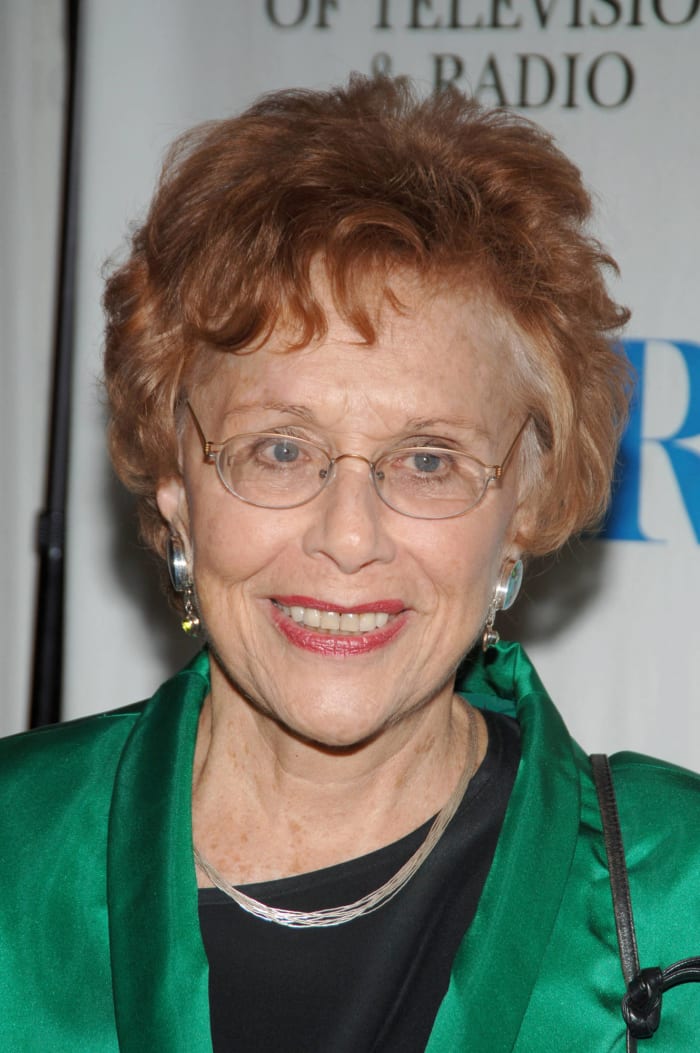
Marlene Sanders was more than just a nine-year correspondent on “60 Minutes;” she was a feminist icon. In addition to being the first female TV correspondent to report from Vietnam, Sanders was also the first female to anchor an evening newscast in the U.S. and the first female vice president of ABC News. Sanders also won numerous Emmys, produced several highly acclaimed documentaries and was even the subject of at least one herself: 2014’s “She’s Beautiful When She’s Angry.”
Andy Rooney (1978 – 2011)

“All this, and Andy Rooney, tonight on ‘60 Minutes.’” That familiar phrase was a familiar part of each broadcast for some three decades, as the cranky commentator joined the newsmagazine in 1978 and didn’t depart until 2011, when he was 92 years old. Regardless of Rooney’s age, you could count on him to be wry, entertaining, humorous and often controversial with his opinions on anything from racial, political, religious or social issues to product labels, what he had in his desk and other random idiosyncrasies related to himself or the world. Rooney was never a host of “60 Minutes,” but there’s no doubt the iconic curmudgeon was an integral member of the broadcast team. In fact, after being suspended by CBS for four weeks in response to insensitive comments he made on-air in 1990, the show’s ratings plummeted by 20 percent.
Diane Sawyer (1981 – 89)

After working in communications for Richard Nixon’s White House from 1970 through his 1974 resignation, Diane Sawyer joined CBS a few years later as a political correspondent on “Morning with Charles Kuralt,” a predecessor to “The Early Show.” In 1981, Sawyer joined “60 Minutes” in a part-time role, but she became the first female “60 Minutes” correspondent three years later and remained with the newsmagazine for another five years before departing for ABC. There she co-anchored “Primetime Live,” “20/20” and “Good Morning America,” as well as eventually helming “ABC World News,” a position she held from 2009 to 2014. Now 72, Sawyer is still an active member of the network.
Charles Osgood (1981 – 94)

Longtime TV and radio commentator Charles Osgood is best known for his 22-year stint as host of “CBS News Sunday Morning” from 1994 to 2016. But prior to that he was a part-time “60 Minutes” commentator for more than a decade. At the time, he was also handling the anchor duties at the “CBS Sunday Night News” (1981-1987), followed by the “CBS Morning News” (1987-1992) and the “CBS Evening News with Dan Rather.” Osgood was also active on the radio, but listening to the Emmy-Award winner through that medium meant missing out on his signature bow ties.
Forrest Sawyer (1985 – 87)
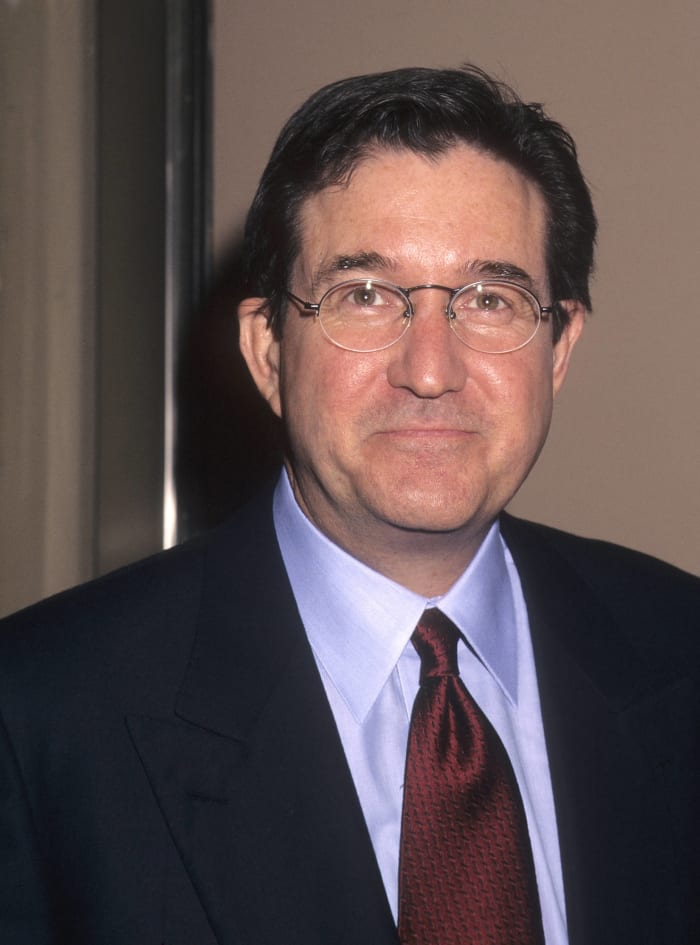
Forrest Sawyer’s contributions to “60 Minutes” are now nothing more than a footnote, as he was part of the newsmagazine for only a few years in the mid-’80s. Not only was this a brief stint, but during those years, Sawyer was better known as a co-anchor of “The CBS Morning News,” and he followed that up with 11 years with ABC News, including the shows “Day One,” “Turning Point,” “Nightline” and “ABC World News Tonight.” Sawyer later worked at NBC and MSNBC before forming his own company, Freefall Productions, in 2005. Thus far, his nearly 40-year career has yielded seven Emmys and a Peabody Award.
Steve Kroft (1989 – present)

Hats off to Steve Kroft, who is the longest-tenured current host or correspondent of “60 Minutes.” Kroft joined CBS in the network’s London bureau in 1984, and after several especially successful stories (including the TWA Flight 847 hijacking and an Emmy-winning report on the assassination of Indira Gandhi), he was eventually promoted to a “60 Minutes” host in 1989. Kroft went on to produce the Peabody Award-winning story of a friendly fire incident during the Gulf War, an Emmy-winning profile of Senator Bob Dole, a damning report on the Cuban government’s treatment of AIDS patients and Barack Obama’s last interview as president. In all, Kroft has amassed five Peabodys and 11 Emmys.
Meredith Vieira (1989 – 93)

It’s hard to tell based on her ever-youthful appearance, but Emmy Award-winning journalist Meredith Vieira actually got her start at CBS way back in 1982 as a reporter out of the network’s Chicago bureau. Vieira’s role on the network expanded in 1989 when she joined “60 Minutes.” She aired her first solo story in 1990 (a report about exotic wild animals), and a few years later she also took over as co-anchor of the “CBS Morning Show.” Partly due to being subjected to sexism at network, Vieira departed CBS for ABC in the mid-'90s, and she eventually became a prominent part of “Turning Point,” “The View,” the game show “Who Wants to Be a Millionaire,” “Today” and “The Meredith Vieira Show,” among numerous other programs.
Connie Chung (1990 – 93)

When it comes to covering all the major networks, Connie Chung is queen. The journalist started out as a correspondent and anchor at CBS in the ‘70s, left for NBC in 1983 and returned to CBS again in 1989 to host her own Saturday night news program, which is best known under the title “Face to Face with Connie Chung.” While also anchoring numerous other shows at the network (including the “CBS Sunday Evening News,” CBS Evening News,” and “Eye to Eye”) in the mid to late ‘80s, she also worked as an occasional “60 Minutes” correspondent. Completing her trifecta, Chung later left CBS for ABC to host the Monday installment of “20/20,” and for good measure, she also worked at CNN and MSNBC. Chung has been criticized numerous times for her controversial interview tactics, but there’s no doubt she can dig up an entertaining story.
Paula Zahn (1990 – 99)

In addition to contributing as a part-time “60 Minutes” correspondent, Paula Zahn’s nine years at CBS also saw her lending a hand to the “CBS Evening News” on Sundays, “48 Hours,” “Public Eye with Bryant Gumbel” and “CBS News Sunday Morning.” In 1999, she left network TV for the rapidly expanding world of cable news, first as an anchor on Fox News (including anchoring her own show, “The Edge with Paula Zahn”) and later CNN. More recently, she worked for both the PBS and Investigation Discovery channels. Her show on the latter network, “On the Case with Paula Zahn,” is still going strong after nine years.
Lesley Stahl (1991 – present)

Steve Kroft has logged 29 years on “60 Minutes,” but Lesley Stahl is hot on his tail in second place with 27 years. However, Stahl has actually been with CBS longer than Kroft, having been hired in 1972 — a full 12 years before him! Just months into her first job at the network, Stahl managed to score the first-ever photos of the Watergate burglars, and her career took off as a result. In addition to her hosting duties on “60 Minutes” (where, among other stories, she broke the news that Al Gore wouldn’t run for president in 2004 and, more recently, landed President Trump’s first post-election TV interview) Stahl has also moderated “Face the Nation,” co-hosted “America Tonight” and hosted “48 Hours” during her CBS tenure.
John Roberts (1992 – 2005)

Fox News Chief White House Correspondent John Roberts left CBS 13 years ago, but that was after working for the network for 13 years. During that time, Roberts anchored the “CBS Morning News,” “CBS Sunday Evening News” and got his first gig as a White House correspondent all while contributing to “60 Minutes” on a part-time basis. When it was clear he would not be named Dan Rather’s replacement on the “CBS Evening News,” Roberts packed up his three Emmys and left for a five-year stint on CNN.
Russ Mitchell (1995 – 98)

For a few years around the turn of the 21st century, it may have seemed like Russ Mitchell (second from right) was everywhere on CBS. Maybe you saw him on as a correspondent “Eye to Eye” or “60 Minutes,” or anchoring “Up to the Minute” or the “CBS Sunday Night News.” Or maybe it was the “Saturday Early Show” or “The Early Show.” All of these answers are correct, and let’s throw in the “CBS Saturday Evening News” and “CBS Sunday Evening News” for good measure, too. But then in 2011, Mitchell suddenly decided to leave both the network and the national spotlight in one move by heading to NBC’s WKYC Cleveland affiliate.
Bob Simon (1996 – 2015)

Twenty-seven. That’s how many Emmys the late Bob Simon won during his esteemed 47-year career, along with four Peabody Awards. Of those years, 19 were as a host and correspondent on “60 Minutes,” where Simon covered stories fearlessly. This bravery came in handy, because Simon was actually captured by Iraqi forces at the beginning of the Persian Gulf War in 1991, which he later chronicled in a memoir titled “40 Days.”
“He didn't just witness history, he strived to understand it,” Dan Rather recalled after his colleague’s untimely death in a 2015 car accident. “There was no issue he couldn't cover, no story he couldn't tell.”
Christiane Amanpour (1996 – 2005)

In a unique career twist, Christiane Amanpour actually started her career with CNN in 1983, just three years after the network was founded. As a foreign correspondent, she covered numerous conflicts and the fall of European communism before becoming a special contributor to “60 Minutes” in 1996. She won her second Peabody Award with the newsmagazine and even became a host in the early 2000s while still at CNN. After departing the program in 2005, Amanpour joined ABC a few years later, and today she still works for both that network (as a global affairs anchor) and CNN (as chief international correspondent).
Stanley Crouch (1996)

If you blinked in 1996, you may have missed Stanley Crouch’s tenure on “60 Minutes.” The writer and critic had numerous appearances on the show that year as a commentator but only in short segments in which he participated in debates with commentators Molly Ivins and P. J. O’Rourke. The passionate and argumentative Crouch doesn’t spar as much nowadays, especially on TV, but he is still an active documentary interviewee and writer and won a Windham–Campbell Literature Prize in 2016 for his novel “Don’t the Moon Look Lonesome?”
Molly Ivins (1996)

When a liberal voice was needed on “60 Minutes” for series of segments in 1996, the accomplished and sharp-tongued columnist Molly Ivins answered the call. Ivins has previously written for The New York Times (where she penned Elvis Presley’s obituary in 1977) and the Dallas Times Herald (where she earned two Pulitzer Prize nominations) among other publications. Although she passed away in 2007, her spirit lives on in the hearts of her admirers, including actress Kathleen Turner, who portrayed the journalist in the 2012 play “Red Hot Patriot: The Kick-Ass Wit of Molly Ivins.”
P. J. O'Rourke (1996)

Satirist and journalist P. J. O’Rourke represented the conservative side of the debates with Stanley Crouch and/or Molly Ivins, but his early resume doesn’t sound like that of a stereotypical conservative. O’Rourke cut his teeth as the editor-in-chief of the National Lampoon, followed by gigs writing for Playboy and Rolling Stone before getting hired by “60 Minutes” for a brief stint in 1996. Now 70 years old, he has penned some 16 books, three of which ended up on the New York Times Bestseller List, and still regularly contributes to numerous major publications, including The Atlantic Monthly and The Daily Beast.
Carol Marin (1997 – 2002)

After working on the local news beat for 25 years, Carol Marin was called up to the big leagues in 1997 to be a part-time correspondent on “60 Minutes,” “60 Minutes II” and the “CBS Evening News with Dan Rather.” When she left in 2002, it wasn’t to go to another competing network, but to create her own documentary company, Marin Corp Productions, with producer Don Moseley, who was hired by CBS at the same time as Marin. Together, the longtime partners earned a Peabody (Marin’s second) and two Emmys.
Bryant Gumbel (1998 – 2002)

In addition to a stint as a part-time correspondent on “60 Minutes” from 1998 to 2002, the ubiquitous Bryant Gumbel also hosted NBC Sports’ NFL pregame show and Olympic coverage, hosted “Today” (and still occasionally appears on it), as well as “Public Eye with Bryant Gumbel,” “The Early Show,” and HBO’s “Real Sports with Bryant Gumbel.” He won a Peabody Award in 2012 for the latter show, which is still going strong today!
Scott Pelley (2003 – present)

Don’t be fooled by the fact that Scott Pelley has been with “60 Minutes” for only 15 years; he has actually been employed by CBS for twice as long. Pelley began his career covering major stories like the Gulf War, 1992 presidential election, 1993 World Trade Center bombing and Waco siege before becoming the network’s chief White House correspondent in 1997. Two years later, Pelley could be seen on “60 Minutes II,” where he landed numerous exclusive stories and interviews prior to joining “60 Minutes” in 2003. The distinguished journalist has won numerous Emmys during his career, including one for a report from the frontlines of the genocide in Darfur, and he also anchored the “CBS Evening News” from 2011 to 2017.
Bill Clinton (2003)

In the lead-up to the 2004 presidential election, which would determine the successor to two-term President George W. Bush, “60 Minutes” enlisted two familiar faces to debate various hot-button issues over the course of 10 segments. Representing the liberal side was easily the bigger name: former President Bill Clinton. At the time, Clinton was busying himself with giving speeches, raising money for the Clinton Foundation and preparing to back presidential candidate (and future commander-in-chief) Barack Obama.
Bob Dole (2003)

When finding an opponent to spar with Bill Clinton, “60 Minutes” went with quite the logical choice: former Congressman and Senate Majority Leader Bob Dole, who opposed Clinton in the 1996 presidential election. Having already retired from politics after losing the election, Dole also contributed as a correspondent to “Larry King Live” and worked as a registered lobbyist on behalf of foreign governments.
Lara Logan (2005 – present)

At only 47 years old, Lara Logan is one of the youngest members of this list, but she has certainly made her mark on CBS in this abbreviated timeframe. After coming aboard the network in 2002 as a war correspondent who often reported from the frontlines, she became a “60 Minutes” correspondent just a few years later and has been a host since 2012. Additionally, Logan has also contributed to “The Early Show,” “Face the Nation” and the “CBS Evening News,” where she is currently the chief foreign affairs correspondent. In addition to her acclaimed reporting skills, Logan also received attention in 2011 for getting detained (along with her crew) by the Egyptian Army and later assaulted and nearly beaten to death by a large group of Egyptian male civilians.
Katie Couric (2006 – 11)

It was only a matter of time before Katie Couric eventually ended up on “60 Minutes.” After beginning her career with ABC in 1979, Couric later moved to CNN and NBC (including NBC News, NBC Sports and “Today”) before being lured away by CBS in 2006. That year, she became the first female to have anchored the news on all three major TV networks. Although eventful (often landing the most coveted of interviews, including VP hopeful Sarah Palin in 2008), her stint on “60 Minutes” would be somewhat short-lived; five years after her hire, Couric left to return to ABC, work for Yahoo!, and start her own production company.
Anderson Cooper (2007 – present)

With all the face time he gets on CNN, Anderson Cooper isn’t known by many for his time on “60 Minutes,” even though he still contributes to the show! Cooper started his career as a journalist with ABC in 1995 but didn’t become a household name until he began hosting CNN’s “Anderson Cooper 360°” in 2003, where he became known for covering disasters like the Sri Lanka tsunami, Hurricane Katrina and the Niger famine all in 2005 and also won several Emmys. He joined “60 Minutes” two years later and remains with both networks to this day.
Charlie Rose (2008 – 17)

Charlie Rose’s 45-year media career has included work with PBS, CBS, NBC and FOX. The 76-year-old is best known as the host of “CBS This Morning,” although he also worked as a correspondent for both “60 Minutes” and “60 Minutes II” for nearly a decade. Rose compiled a respected career that earned him Emmy and Peabody Award wins, but he was fired from CBS and blacklisted after a 2017 report by The Washington Post revealed that eight women accused the host of repeated workplace sexual harassment dating from the late ‘90s to 2011. In 2018, the number of women grew to a total of 35.
Byron Pitts (2009 – 13)

It was only a matter of time before Byron Pitts ended up as a correspondent on “60 Minutes.” The journalist said he set a goal of joining the show way back in 1978 when he was just 18 years old, and he first worked for the network via a local affiliate back in 1983. While climbing the ladder, Pitts had stops at “CBS Newspath” and “CBS News,” the latter of which earned him an Emmy for his coverage of the Sept.11 attacks. This was actually his second national Emmy, which came in addition to six regional versions of the award. Pitts finally achieved his dream in 2009, and he stayed with “60 Minutes” until 2013 when he left for ABC News.
Alison Stewart (2012)

Alison Stewart’s rise to “60 Minutes” came from somewhat unexpected beginnings. She actually began her broadcast career as an assistant at MTV and a segment producer for MTV News, which earned her a Peabody Award following her coverage of the 1992 presidential election. Stewart later earned jobs with CBS (including “CBS News Sunday Morning” and “48 Hours”), ABC (“World News Now,” “20/20 Downtown” and “Good Morning America”), MSNBC, NPR and PBS, before being hired as a “60 Minutes” correspondent for a single story about students who cheat on their SATs in 2012. The next year, Stewart returned to PBS.
Sanjay Gupta (2011 – 14)

Easily the most famous neurosurgeon and medical reporter in the media today (and possibly all time), Dr. Sanjay Gupta’s has had a whirlwind career that has seen him covering the invasion of Iraq, the destruction of Hurricane Katrina (which won him one of numerous Emmys) and the rise of medical marijuana — a treatment he once opposed but now endorses. Prior to being a part-time correspondent for “60 Minutes” between 2011 and 2014, Gupta was named CNN’s chief medical correspondent and was also briefly considered as a nominee for the position of surgeon general under President Barack Obama.
Bill Whitaker (2014 – present)

Bill Whitaker is the newest host of “60 Minutes,” having joined the team only four years ago. After being a correspondent for numerous local stations as well as serving as CBS News’ Tokyo correspondent, Whitaker has since traveled to Africa, Europe, the Middle East, Mexico and Asia as a member of the newsmagazine. During his nearly 40-year career, Whitaker has won one Peabody Award, which he received in recognition of his report on a law pushed by drug lobbyists that the DEA said hindered its efforts to battle the ongoing opioid epidemic.
Norah O'Donnell (2015 – present)

The youngest member of the current “60 Minutes” team, Norah O’Donnell began her career working on NBC’s “Today,” as the chief Washington correspondent for MSNBC and as a White House correspondent for NBC news, as well as compiling appearances on “Dateline,” the “NBC Nightly News” and “Hardball with Chris Matthews.” Since 2011, the Emmy winner has been with the CBS network, and she began a part-time role with “60 Minutes” four years later.
Sharyn Alfonsi (2015 – present)
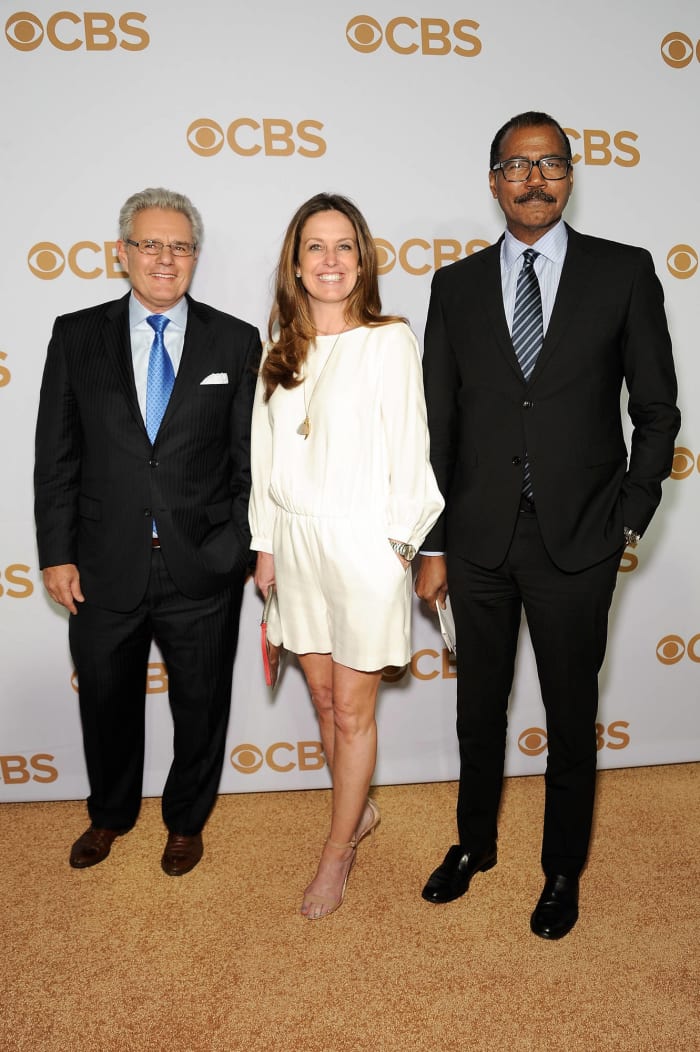
Although she has only been a part-time correspondent for “60 Minutes” for three years, Sharyn Alfonsi started working for CBS 14 years ago as a CBS News correspondent and an anchor on the “CBS Evening News.” Alfonsi left the network between 2006 and 2012 for stops at ABC’s “Good Morning America” and “World News,” but she has been with CBS for the last six years. Her first story with “60 Minutes” aired on March 1, 2015, which was an investigative report about post-Hurricane Sandy fraud cases.
Oprah Winfrey (2017 – present)

Do we really need to provide the backstory on Oprah Winfrey? Almost everyone alive today is aware that she hosted a wildly popular and impactful talk show between 1986 and 2011, although many people are not aware of what she is currently up to. After ending her show seven years ago, the 20-time Emmy winner founded the Oprah Winfrey Network, continued her active philanthropic efforts, was awarded the Presidential Medal of Freedom and later joined “60 Minutes” as an occasional correspondent in 2017.
Matt Sulem has been writing and editing professionally for more than a decade. He has worked for BubbleBlabber, The Sportster, and The Daily Meal, among other publications, but has called Yardbarker home since 2006. Matt’s writing combines a love for nostalgia with a passion for promulgating interesting, informative, and lesser-known facts about pop culture
More must-reads:
Breaking News
Trending in Entertainment
Customize Your Newsletter
 +
+
Get the latest news and rumors, customized to your favorite sports and teams. Emailed daily. Always free!
PRIVACY POLICY EDITORIAL POLICY CONTACT US
ABOUT YARDBARKER TERMS OF SERVICE
Use of this website (including any and all parts and
components) constitutes your acceptance of these
Terms of Service and Privacy Policy.
This site is for entertainment purposes only.
There is no gambling offered on this site.
Gambling Problem? Call 1-800-Gambler.








